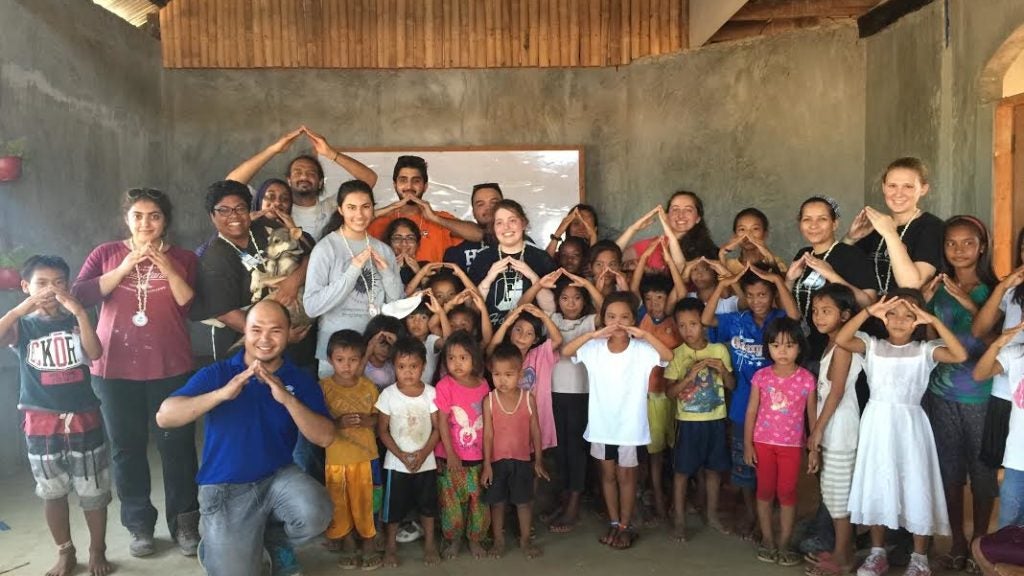Georgetown Students Trade their Books for Shovels Through the Community Engagement Program

Eight students from Georgetown University in Qatar’s Community Engagement Program (CEP) recently returned from the Philippines where they learned first-hand about ongoing disaster management efforts in the wake of Typhoon Yolanda’s devastating impact on millions of people in 2013. The second round of this semester’s CEP, an immersive hands-on educational experience available exclusively on the university’s Doha campus, takes participating students out of the classroom and into the field, to see how disaster management policies are applied in the real world.
Over the course of ten days in Cebu, one of the Philippines’ major logistics hubs during the aftermath of the deadly storm, students met with many stakeholders involved in the recovery, including civil society leaders and government representatives, and took part in building homes through Habitat for Humanity.
“All these meetings enhance the students understanding of the issues because they each present a different aspect of it,” said Student Development Officer Indeewaree Malki Thotawattage, who along with SDO Rebecca Barr, coordinated the program and accompanied the students on their learning trip. In preparation for the service trip, the students completed the Qatar Red Crescent certificate program in Disaster Management.
Standing shoulder to shoulder with the future homeowners themselves, the team of Georgetown students put shovel to earth, digging out septic tanks for homes to replace those obliterated in the disaster. “There is a rule about using only manual labor for safety purposes, as well as to use regular people instead of professionals. Sure, it made the job more difficult but it also changes the experience for all of us. Everyone has a stake in the project. That’s what sweat equity is,” said participating student Warda Abdelrahman Elkhalifa, a junior majoring in Culture and Politics.
“What’s really great about CEP is the fact that it allows our students to have a taste of a real world experience,” said Indeewaree. “I think sometimes students can live sheltered lives, and on this trip, I could really see the wheels turning in their minds as our students were taking it all in.”
Now in her second and last year with the CEP program, Indeewaree stresses the importance of a program that puts students on the ground and, as the program is called, engaged directly with the community. “A lot of the time, when the students get answers to their questions, it just leads to more questions. And that’s what we want. This is what leads to learning and growth. It’s a process.
When asked how to quantify the impact of the trip on a university education, Indeewaree sets no limits. “Students in their senior year will often include the issues they’ve grappled with on a CEP trip, in their senior thesis. When it comes to a student’s development, it’s a long term benefit.”